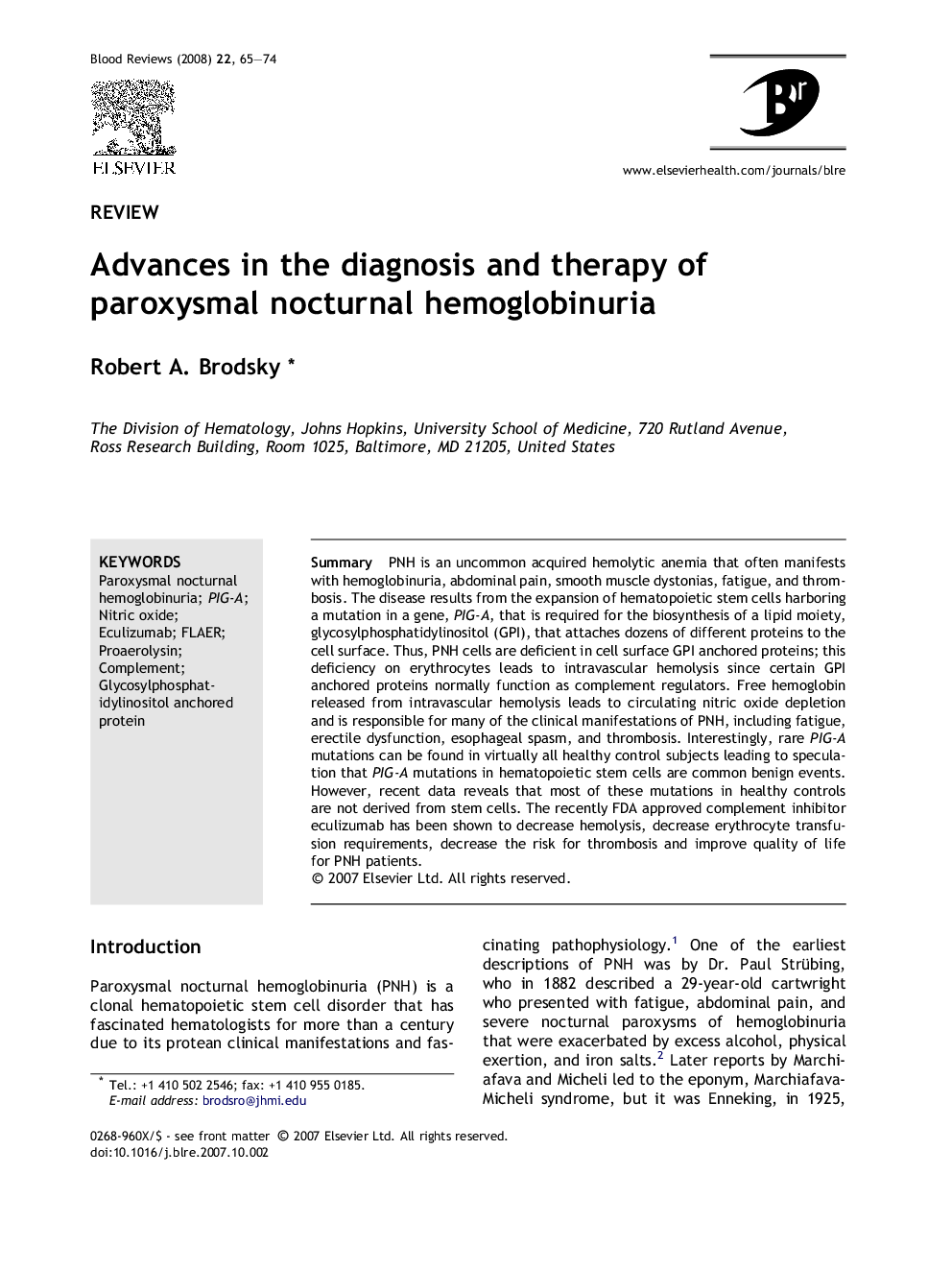| کد مقاله | کد نشریه | سال انتشار | مقاله انگلیسی | نسخه تمام متن |
|---|---|---|---|---|
| 2106350 | 1083508 | 2008 | 10 صفحه PDF | دانلود رایگان |

SummaryPNH is an uncommon acquired hemolytic anemia that often manifests with hemoglobinuria, abdominal pain, smooth muscle dystonias, fatigue, and thrombosis. The disease results from the expansion of hematopoietic stem cells harboring a mutation in a gene, PIG-A, that is required for the biosynthesis of a lipid moiety, glycosylphosphatidylinositol (GPI), that attaches dozens of different proteins to the cell surface. Thus, PNH cells are deficient in cell surface GPI anchored proteins; this deficiency on erythrocytes leads to intravascular hemolysis since certain GPI anchored proteins normally function as complement regulators. Free hemoglobin released from intravascular hemolysis leads to circulating nitric oxide depletion and is responsible for many of the clinical manifestations of PNH, including fatigue, erectile dysfunction, esophageal spasm, and thrombosis. Interestingly, rare PIG-A mutations can be found in virtually all healthy control subjects leading to speculation that PIG-A mutations in hematopoietic stem cells are common benign events. However, recent data reveals that most of these mutations in healthy controls are not derived from stem cells. The recently FDA approved complement inhibitor eculizumab has been shown to decrease hemolysis, decrease erythrocyte transfusion requirements, decrease the risk for thrombosis and improve quality of life for PNH patients.
Journal: Blood Reviews - Volume 22, Issue 2, March 2008, Pages 65–74